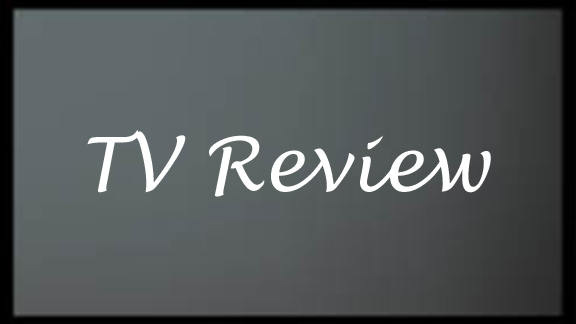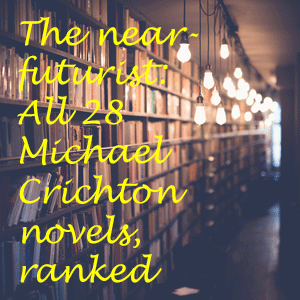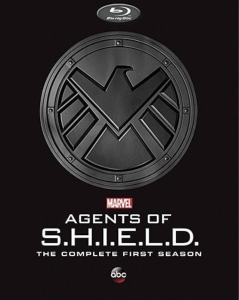Joss Whedon’s first four TV series are about underdogs who are victimized or marginalized by a corrupt government or system, which they heroically battle against: Buffy is a tool of the Watcher’s Council, but she asserts her individuality; Angel is beat down by Wolfram & Hart and tries to take it over from within; the crew of the Serenity is pushed to the fringes of the galaxy by the tyrannical Alliance; and Echo is a slave of the Dollhouse, which literally can program her brain as they see fit.
Whedon a hired gun
Another commonality among “Buffy,” “Angel,” “Firefly” and “Dollhouse” is that they are all original Whedon concepts. His new series, “Marvel’s Agents of S.H.I.E.L.D.” (7 p.m. Central Tuesdays on ABC), is the polar opposite of his previous TV oeuvre. As we can tell from the title, it’s Marvel’s concept, not Whedon’s.
Also, it’s not about outsiders, it’s about insiders: Members of an incredibly well-funded government agency that seems to regulate people with superpowers, having (arrogantly and wrongly, in my opinion) made the determination that society isn’t ready to know about them (or at least, not to know anything more about them than what they saw in the Battle of New York, chronicled in “The Avengers” movie).

“Marvel’s Agents of S.H.I.E.L.D.” Season 1 (2013)
Tuesdays, ABC
Creators: Maurissa Tancharoen, Jed Whedon, Joss Whedon
Stars: Clark Gregg, Ming-Na Wen, Brett Dalton
Based on his resume, it’s safe to say that Whedon isn’t a strict authoritarian; however, he has gone on record saying he believes that good can come from progressive government. As he said of heroic main character Mal Reynolds (“one of them independents”) in “Serenity: The Official Visual Companion”:
“(Mal is) everything … that MY hero is not, because he’s somewhat of a reactionary, he’s a conservative kind of libertarian guy. I’ve often said that if Mal and I sat down to dinner, we’d have a terrible time. I don’t actually agree with most of what he says.”
Of course, that’s not to say Whedon agrees with the Alliance’s actions, with their Blue Sun agents and Operatives and whatnot. It’s probably more accurate to say he believes big government isn’t evil by definition; that it can be good when good people are in positions of power. That’s probably what drew him to “S.H.I.E.L.D.”
It comes along at perfect time
In some ways, due to the current state of the American government (big wars, spying, control of markets, etc.), his first four series play better today than ever before. But one could also argue that “S.H.I.E.L.D.” comes along at a perfect time because it imagines good people in a big government. Whether that’s pure fantasy or a reasonable possibility, it’s certainly not a bad thing for a viewer to hope for.
I don’t begrudge Whedon his political statement, but it also seems to me that there’s something inherently less dramatic about this premise than the underdog tale. I like the S.H.I.E.L.D. agents as people: Agent Coulson, who (it’s strongly hinted) is an exact-but-artificial replica of the Coulson who was killed in “The Avengers”; new recruit Ward and newer recruit Skye; tech experts Fitz and Simmons, who have sort of a Harry-and-Hermione vibe (it’s the way they dress, and the British accents), with cutting-edge-science being their cup of tea rather than magic; and Melinda May, the group’s muscle.

In the pilot, down-on-his-luck factory worker Mike (“Angel’s” J. August Richards, showing he hasn’t lost his acting chops) undergoes the classic superhero (or is it supervillain?) origin story where he gains super strength but then goes too far, seriously hurting his former foreman. In addition to being psychologically unstable, Mike’s also physically unstable — he could literally blow up. So the Agents subdue and stabilize him. The larger mythology is that someone artificially gave Mike his super strength in a medical experiment. That someone is still at large, and therefore we’ll have more episodes.
It goes without saying that the pilot is slickly made, with lots of trademark Joss cliché-flips: Coulson sticks Ward with the truth serum rather than Skye; the girl Mike rescued is actually part of the mad-scientist group that gave him powers.
And, of course, there are the quips and funny dialog: Coulson dramatically enters from a dark corner, then mentions there’s a light bulb out; Fitz wants to show off a bit of technology, but struggles not to use a double entendre (“my thing … hardware … equipment …”). Certainly, in a genre that includes mediocre entries like “Alphas,” “Heroes,” “The Cape,” etc., “S.H.I.E.L.D.” is a cut above.
But what’s at stake?
But what’s at stake here? We’re talking about a group that can — in a matter of hours — figure out how to stop a human bomb. Just from the tour of the incredibly slick secret headquarters, it’s hard to imagine any threat that S.H.I.E.L.D. couldn’t stop.
Compare that to the pilot episodes of Whedon’s first four shows and, well, there really is no comparison. It’s easy to root for Buffy, Angel, Mal and Echo. In “S.H.I.E.L.D.,” it’s easy enough to like the genuinely good people of this entrenched power, but I feel like they don’t need me to root for them. Sure, I hope they succeed in stopping bad guys, but I don’t feel particularly invested.
Whedon (who, it should be noted, will not be as involved in this series as is the norm for him) used to instruct his writers to answer one question when writing a script: “What’s the ‘Buffy’ of it?” In other words: “What’s at stake for the characters emotionally?” Or perhaps, “What is the universally challenging life event?” That directive seemed to carry over to “Angel,” “Firefly” and even his one non-masterpiece, “Dollhouse.” But “S.H.I.E.L.D.” seems notably slick, sterile, cool, quippy, fast-paced … and all too empty.

